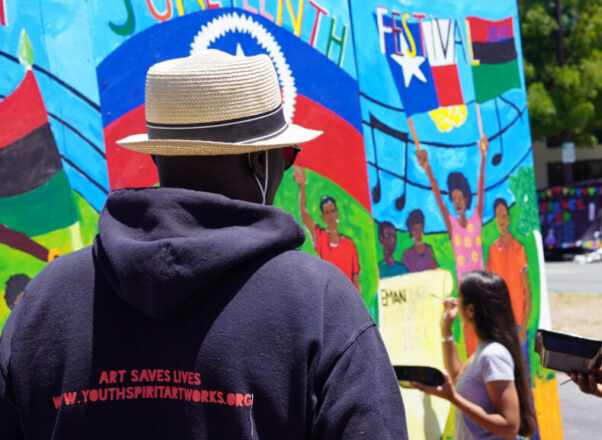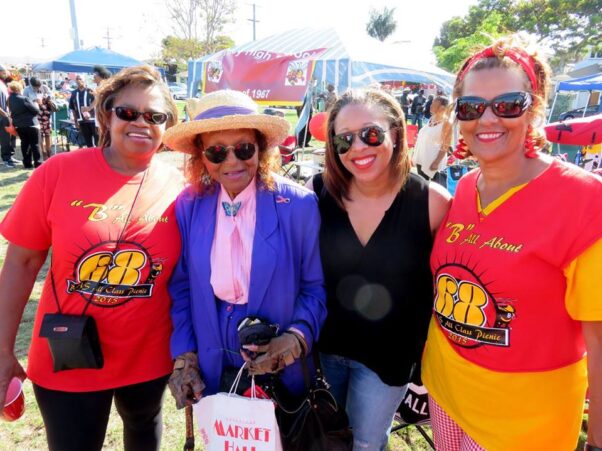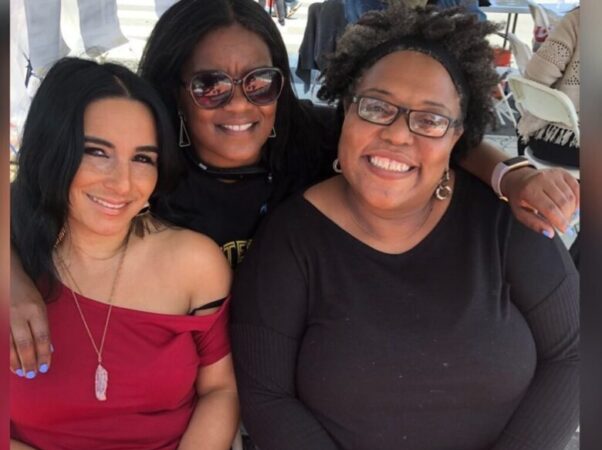MISSION STATEMENT:
"Promote cohesiveness and well-being in the lives of African Americans by celebrating their art, culture and history. Engage the community at-large; Advance social justice solutions in those impacted communities."
About JUNETEENTH
The significance of Juneteenth carries a lot of weight for African Americans: celebrating our emancipation from chattel slavery, but never forgetting the nightmare of slavery; celebrating the journey of our ancestors, and our resilience as a people for what we have had to overcome as a result of the systemic legacy of slavery, and in spite of the obstacles that were placed before us; celebrating our unique culture, made in America, but rich with our African heritage; celebrating the contributions we have made to the fabric of America, notwithstanding our humble beginnings, and finally a commitment to the fight for equal justice under the law .
No doubt the founders of the first celebrated Juneteenth in Galveston, TX echoed the desire to simply celebrate our journey, our history, and our struggle for equal justice, which continues… We do not know the names of the Galveston Juneteenth committee, but we do know that in 1865 they established a national legacy, and now a holiday, that is well established in the Black community. This event is a demonstrated example of “Belonging”- our community engaging other communities to celebrate the Black experience…
As for documented history of the BERKELEY JUNETEENTH FESTIVAL, RD Bonds, the founder, invited others to establish a non-profit and begin the organization’s history of celebrating Juneteenth in Berkeley. In 1986, chicken dinners were sold, and an awesome party was held at Nick's Lounge to fund the first celebrated street festival in 1987. James Sweeney obtained the California 501© (3) under the name Berkeley Juneteenth Association, Inc., and the newly appointed board members were RD Bonds -President, Dorothy Wiggins, Evelyn Cockrell, Abiayed Shabazz, Sam Dyke, Rhonda Watts-James, James Sweeney, Delores Cooper (Secretary), and Bradley Walters.
Source: Bylaws signed by the non-profit's board of directors on March 9, 1989.
By the time the federal non-profit was established in 1992, the Festival had been celebrated under the direction of RD for five years. Bonds hired his friends, sister and brother, Paul Smith and Barbara Taylor to book entertainment acts . Their relationship with Berkeley Juneteenth continued after RD’s death in 1995 and up until 2006. For almost 25 years, they worked under the direction of Sam Dyke who provided them with the funds through the City of Berkeley to pay for festival entertainment. Their domain was entertainment, and they did an awesome job of using their premiere connections. But entertainment is only one aspect of a festival. Vendors, equipment, fundraising, etc., was solely managed by Dyke, and the non-profit’s often-transient Board of Directors. In 2007 a new Board breathed new life into the organization. Hours of planning by a tight knit group of individuals built the foundation for today’s Berkeley Juneteenth Cultural Celebrations.
Many individuals had a hand in making the Berkeley Juneteenth Festival the success that it has been for over 36 years. Carla Oden, a local artist designed posters in the 1990s and early 2000s and designed the first Juneteenth banner. Oden also introduced the idea of consistent graphics branding. Reggie Greene created a blueprint for future fundraising, researching the history of Juneteenth and then documenting it. Renowned artist, Mildred Howard contributed her design talents to ensure that the tradition of Juneteenth continued in the neighborhood she grew up in. For 23 years, Lothario Lotho served as the festival’s master of ceremony until his death in 2011. Giselle and Lucky Thomas made volunteering on event day a family affair. Mary Wainwright and Maudelle Shirek ensured the support and sponsorship of the City of Berkeley. Vendors, like Vicki L. Ward and CJs BBQ have participated almost since Berkeley Juneteenth’s inception. We are grateful for named and unnamed participants! The tradition of Juneteenth in Berkeley will continue as long as the community steps forth to make it happen...
PHOTOS BY MALAIKA KABON
© Copyright 2024
Berkeley Juneteenth Cultural Celebrations



